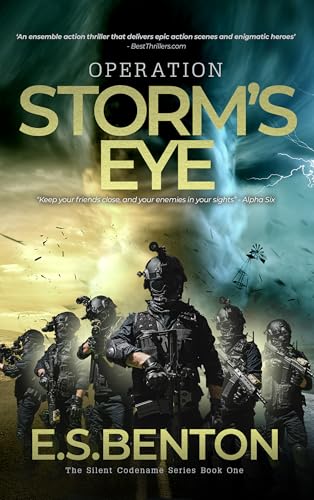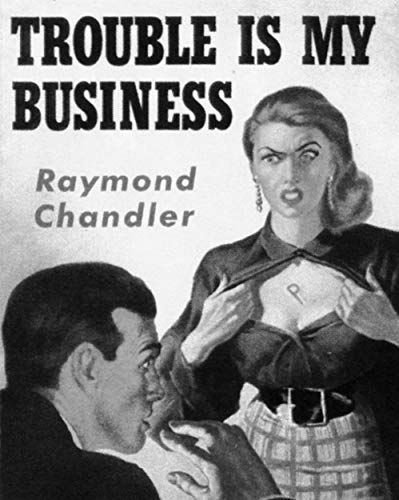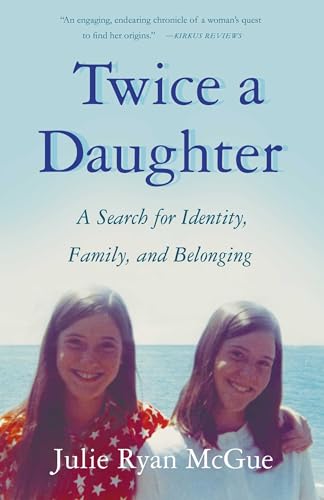Now we’re back to offer our weekly free Thriller excerpt:
Gatekeeper
by Mike Smart
Planes inexplicably colliding, economies in disarray. A psychotic businessman has brought the world to its knees.Can a former Special Forces operative with the help of a damaged Cambridge Professor save a bride to be and avoid worldwide anarchy?
They’ve got 24hrs to try!
A fast moving story written to entertain, short on flowery prose but long on high octane action. Read it by the pool, before you drift off to sleep at night or if you want to risk it; on an airplane.
And here, for your reading pleasure, is our free excerpt:
Prologue
French Airspace – Wednesday Night
Flight BA487 had left Heathrow on time, bound for Dubai. The flight was busy; it always was, Dubai being a very popular holiday attraction in its own right and one which had also, over the last ten years, established itself as a major hub for the near and far East, providing frequent connecting routes into every major business city and favoured tourist location.
Susan sat in the economy section of the Boeing 777 looking forward to getting to Dubai for a bit of shopping. She’d never been there, but her friends had been told stories of wondrous shops with knock-down prices. A supersized Harrods in a series of fabulously clean, perfectly air-conditioned terminal buildings – a great way to spend a couple of hours waiting for her connecting Emirates flight on to Sydney.
She was so looking forward to a month of travelling; she’d spent hours doing research on the internet. On the advice of more seasoned travellers, Susan had written a long list of “must dos”. As this was her first major long-haul trip on her own, she was hoping to meet up with some like-minded fun people to share all her new and exciting experiences.
She had broken up with Marty, her boyfriend of three years, a couple of weeks earlier. He had wanted a serious commitment – two-point-two kids and a nice house in suburbia. Susan felt this was all a little bit too premature. They’d argued, she’d walked out and now she was on her way towards a bit of adventure. In her own mind she was pretty certain that the two of them would work things out when she got back; but in the interim this was her life, to be lived to the full, and at 23 the petite brunette felt she was entitled to some fun before settling down to a life of matrimonial and domestic bliss.
Susan played with the entertainment controls and settled back to watch a movie. Love, Lost and Found had just come out featuring her favourite actress, Sally Stevens, with the bonus of having the gorgeous and oh-so-sexy George Hadley playing opposite her. Her last rom-com had been great fun and according to the reviews that she had read in the Evening Standard on her daily commute back from the smog of Central London, this movie was a good laugh. It had everything by all accounts; a great storyline, lots of intrigue, with some twists and turns in the plot thrown in for good measure. Headphones on, movie starting and looking forward to a couple of drinkies – life was good.
She never got past the opening scene, as the BA487 ploughed straight into the Air France 290 coming out of Paris bound for Atlanta. At 20,000 feet, over the killing fields of Flanders, the planes collided and erupted in a single massive ball of flame; there would be metal debris spread over a 100-mile radius below to be picked over and collected by the air investigators. For the friends and families of the 700-odd passengers and crew on both flights there would be no remains to bury, only the hollow consolation that the ashes of their loved ones would be scattered amongst the poppies, along with so many that had sacrificed their lives in the Great War..
Offshore Dominican Republic – Thursday Afternoon
‘Hey, Jack, you want another beer?’
Jack turned from his position in the fighting chair. ‘Sure, where’re the bloody fish?’ His accent betrayed its origins. Born and raised in south London, Jack was a consummate salesman and a natural trader. ‘We’ve been out here a day and half and not caught or seen bugger all!’
‘Yeh, mon, but that’s fishing… I’ll get you a cold one.’
Orlando, the hired deck hand, looked over at the owner of On a Sales Call. He wasn’t much to look at; late 40s, a couple of lunches too many, but one could sense a certain steel in his manner and he knew people wouldn’t want to get on the wrong side of him. In the four foot swell he may move around the boat with the grace of a drunken elephant, but onshore his powerful, thick-set five foot eleven inch frame had purpose. Orlando imagined that this was a guy you’d like on your side in a bit of rough and tumble.
Jack focused his attention to the fishing again and turned to face the back of the boat. He had had On a Sales Call commissioned to be built three years ago; the name tickled him and reflected his background. Were he ever to be asked where he was, he could simply reply On a Sales Call, leaving the listener none the wiser; that’s exactly where he was – out fishing. Up close or from afar, at just over 50 feet long with her flying deck sat above a luxurious air-conditioned lounge area she looked and played the part of the archetypal sport fishing boat. Down below, the lounge led to a couple of spacious double en-suite cabins; with a top speed of forty knots, the boat could get him to the best spots ahead of the pack when he fished in the Marlin competitions he so enjoyed. Money being no object, rather than going for the cheaper fibreglass hull Jack had opted to have the boat built of polished wood. On A Sales Call attracted envious stares wherever she went and he was suitably proud of her.
Jack could see, around 15 miles to his left, the very faint outline of the Dominican Republic. According to some of his fishing pals this was a good time of year to be fishing for Blue Marlin, his target for the last couple of days. The Blue Marlin, largest of the billfish family, was a prized catch for any sport fishing angler. Jack had caught a few and recalled the thrill of hooking into one; it had become almost addictive. He’d go out looking for one of these rare fish at every opportunity. For the hundredth time he counted off the lures in the water – and as before, he watched the two close in some 60 feet behind the boat then seek out the remaining three artificial baits. All five of them were designed to imitate small fish or squid with the furthest set some 70-80 yards away, skimming through the tops of the dark blue Caribbean waves behind the boat. Jack never got bored fishing; it was cathartic, and for the umpteenth time he imagined seeing a dorsal fin appearing through a crest making a beeline for one of the baits. He pictured the fish, all 600lbs of muscle and bad temper snatching at his personal favourite lure. In all, about twelve inches long, it was a red and white mixture of rubber, coloured plastic and a four-inch steel hook, reminding him a tube shrimp fly, very much smaller in size, that he might use fly fishing for salmon on the Tweed, another passion of his.
The cold beer arrived before the fish. No change there then, thought Jack; still, life’s pretty good, the odd billion in the bank, sun shining, no phones – but he knew in his heart that this idyllic vista could well change abruptly and quite possibly not for the better. He had a nagging thought that what had started out as a simple concept had rather spiralled out of control, and that he had inadvertently jeopardised all that he had worked so hard to build. Unlike the fate that awaited any fish silly enough to have a go at one of the five lures trolling happily off the back of the boat, he severely doubted that, when all that had transpired became public domain, he would simply have a tag stuck on him and be released back to swim the seas. .
A quick look at the solid gold Rolex Submariner on his wrist (a present to himself when he made his first million) told him it was nearing 5pm and that he ought to consider calling it a day and make the turn for shore, back to his wife who was waiting in the luxury villa that they had rented for a couple of weeks. Nice place, he thought, with staff to take care of everyone’s needs – he was particularly fond of the obliging masseuse who for the odd hundred bucks would ensure that a body massage was a truly memorable experience. He felt no guilt about his more-than-the-odd indiscretion; he was an alpha male and only thought it right and proper to take what he wanted, when he wanted. He had, at least in his mind, earned the right.
Give it one more Robusto, Jack mused. Smoking cigars was one of his favourite pastimes. He’d given up cigarettes in his early twenties and now managed to get through five or six of the hand-rolled luxuries a day. He pulled himself, less than gracefully, out of the wooden fighting chair which, though fixed firmly to the deck, allowed the occupant to swivel a full 360 degrees when playing a fish. The seat dominated the aft of the boat. Its recent occupant climbed up the twelve-step ladder onto the flying bridge.
‘Craig, take us out on more loop, please – we’ll give it another hour and then call it a day.’
‘Sure, Jack, whatever you say.’
Craig had been the Captain of On a Sales Call for just over two years; he knew that his boss was going to be in a pretty foul mood having two consecutive blank days but he reasoned that there was not much he could do about it. He’d quartered the water thoroughly and had ensured that Orlando had kept up a stream of fresh dead bait on two of the lures. He knew that Orlando would be working desperately hard to catch a fish in order to secure a healthy tip from his tenure as a temporary member of the crew. There wasn’t much work to be had on the island outside of tourism and sugar plantations, so the deck hand would certainly be keen to impress… nope, the fish just weren’t in a helpful mood today.
Craig didn’t know the waters here as well as his home patch off the shores of his beloved Cape Town. A consummate pro, he knew the capabilities of the boat and could read weather and water conditions extremely well; if there were fish to be had he’d normally return a good result. Fishing and the sea were in his blood; he’d fished all over the world with Jack and for the most part had thoroughly enjoyed being in this powerful man’s employ. They’d met by chance in truth; Jack was at a loose end, having finished his business dealings earlier than expected, and had shown up on the quayside at Hout Bay in the Cape looking for some sport. Apparently, an associate of Jack’s had recommended Craig’s chartering business over dinner the preceding evening.
For the past seven years, before he met Jack, he had been taking anglers of mixed abilities out to the confluence point of the South Atlantic and Indian Ocean about 30 miles south of the Cape of Good Hope. It was a prolific place to fish, Yellow Fin being the most common catch ranging in size from five or six kilos up to eighty or ninety. Occasionally he would get the bonus of hooking into a giant Blue Fin tuna which could run up to an enormous 350 kilos, or 750 pounds in old money. Hook one of those and he was in for a really good day as there was always a willing market in Tokyo for fresh Blue Fin. To keep them fresh for the sashimi restaurants he’d call ahead as he was making his way back to port. Waiting for his return there would be specially designed “tuna coffins” waiting on the dock which would then be flown, with their expensive contents, overnight to Japan.
His simple “lifestyle” business model was designed to let him go fishing every day and get paid for it; he’d give the paying passengers a good time and then pocket the money from selling any fish that they caught. In truth, business had been patchy and when, after a good day’s fishing, he and Jack started chatting he couldn’t believe his good fortune.
Jack’s offer was something of a no-brainer; money no object and lots of freedom to fraternise with whichever locals he could find in the various ports he hung out in while waiting for the owner to come aboard.
At thirty-two, he married a gorgeous South African model who’d taken a shine to his honed body and laid-back approach to life – in the end he couldn’t keep up with her hectic lifestyle and had little time for the flaky friends with whom she circulated in the world of high fashion. Karen had rang him from an assignment a year after their wedding and confirmed the inevitable, something to the effect that whilst she loved him it wasn’t going to work out in the long term and it would be best for them to go their separate ways – and that was it: a phone call, some paperwork arrived a few weeks later and he was a single man again. No tears, no bad feelings, some happy memories and no alimony – well, he was too proud to tap into all the money that Karen made, so at least she was happy to have got away without huge expense.
On a Sales Call turned through 180 degrees back into the gentle swell and headed back out into the open ocean.
‘C’mon fish!’ screamed Jack as he lurched down the ladder and slumped back into the fighting chair – he was content puffing on the Cuban cigar and drinking cold beer. He counted off the lures again, wiped his Revo sunglasses on his t-shirt, reset his cap which he invariably wore backwards and let his mind drift off to contemplate the rather concerning phone call he’d taken from the office in Hong Kong that morning.
Dominican Republic – Thursday Morning
‘Can you get that?’ The incessant buzz of Jack’s mobile could be clearly heard from the lounge. It would flip to voicemail eventually but had been set to ring twenty times before doing so. Jack hated missing calls and would interrupt almost anything to answer the phone. Ironically, when he went fishing he turned his phone off, and he did the same thing when he was having sex – other than that the phone remained doggedly switched on, to the intense annoyance of anybody who was holding a meeting with him.
Jack simply couldn’t stand voicemails and the ensuing game of telephone tag whilst he tried to return an important call with a client or one of his direct reports. He had to know what was going on right then and not wait to find out later; after all, information was power and delays created missed opportunities and that, most likely, cost money. He was a complete control fanatic and not being in possession of all the information meant he’d be out of control of something, which just wasn’t acceptable.
Over the years he’d coached his executives not to waste his time with trivia, and provided them with enough rope so they could operate for the most part on their own. Jack didn’t see this as a relinquishment of his span of control but rather a strict set of guidelines determined by him so that his will and purpose could be executed in his absence. After all, he couldn’t be expected to be everywhere at once – the management teams of the myriad of businesses he controlled knew the parameters within which they could operate. They were rewarded most generously for getting it right and punished mercilessly for failures. The owner of Meta Enterprises recognised people weren’t perfect and that making mistakes was all part of the learning process and an integral part (and therefore an associated risk) of growing a business – he just couldn’t accept his team or anyone in his employ repeating a mistake.That was plain stupid and, well, that just wasn’t good enough in his book.
Katie, Jack’s third wife, reluctantly got off her sun lounger where she had been soaking up the morning rays, which even at that time of day were powerful enough to burn unprotected flesh. She’d been reading a book whilst lying next to the secluded villa’s oblong infinity pool that disappeared off into the fabulous turquoise blue of the Caribbean. She was convinced that she had really lucked out with her husband of four years.
Prior to getting married, Katie had been working for a private jet hire company as both sales executive and glorified air hostess. The pay had been okay, the perks had been bountiful and the assorted gifts she accumulated from bored rich executives had meant that her lithe five foot ten inch body was always adorned with nice expensive trinkets. She recognised it wasn’t going to be a long-term career and that as her looks faded so might her “closing” appeal. Still, it was good while it lasted and she was having fun.
Katie didn’t consider herself a “trophy wife” as such, but that’s how most of the people who met her would probably describe her to their friends over a dinner party table. Blonde, deep blue eyes, legs that went on forever; her 33-year-old body was firm to the touch, toned from countless sessions in the gym and definitely shaped to please the eye. Clothes hung on her well and men were instantly sexually attracted to her. She didn’t have a great number of female friends, as many considered her a threat and frankly couldn’t compete in the beauty parade stakes.
Katie was far more than a pretty face; Jack was a smart man with good taste and whilst good looks were very important he needed more than a piece of eye candy on his arm. She was an asset. She could hold a conversation with anyone, and having her own well-reasoned opinions on a wide range of subjects was an interesting dinner guest; she , knew equally well when to speak her mind or when necessary to hold her own counsel.
Jack, her husband-to-be, had turned up one afternoon at her place of work on his way to New York. Northholt, a former RAF base 30 minutes from the centre of town, was an ideal location for busy executives with company expense accounts that stretched to private jets. Katie was a bit surprised that he was into renting jets and had only found out later that wife number two had taken the “family” jet off to see her family in Italy with the two children, Isabelle and Xavier. As it transpired, the jet never came back – at least metaphorically. It disappeared along with $200m of alimony into the hills around Florence never to be seen again. A bitter divorce had resulted in Jack seeing very little of his children; they had sided with Sabine, a striking and fiery half-German, half-Italian blonde. Jack had a penchant for blonde women.
Business was good in the private charter business.The rich were getting richer and the poor were, well, poor and, not surprisingly, the less well-heeled had little call for $50,000 flights. On this occasion, Katie had offered to “host” the flight as she fancied a few days in New York –in truth she had several reasons she wanted to get on the flight with Mr Jack Hunter. On a purely practical level she had recently been invited to a society wedding and she wanted to buy some new clothes. What better than a trip to the Big Apple to pick up a new wardrobe? The big opportunity and the bonus of playing “sales hostess” on a transatlantic trip was that Jack was a big fish. If she could sweet talk him into a long-term contract then she would make her sales target numbers for the year many times over. In so doing, she would earn a very sizeable bonus as just reward which she could use towards the apartment she wanted to buy in Knightsbridge or Chelsea.
It was almost inevitable on these types of trips that from the outset there was a degree of sexual tension in the air; unsurprising given the highly combustible mix of sex, money and power. Katie was stunning to look at and knew it. High-powered executives with egos the size of a planet who were used to getting what they wanted, when they wanted. Add to this explosive cocktail seven or eight hours to kill on a luxury private jet with all the usual amenities and being in close proximity with an ambitious “sales hostess” like Katie. The game, as one says, was well afoot and in many cases well underway even before the jet had left the ground. One thing could, and very frequently did, lead to the next and Katie knew how to use the rules of the game to her advantage.
Jack had taken his seat in the Citation. He was tired and had had a long day sorting out one of his more awkward customers. He graciously accepted the offer of a freshener; Grey Goose, lots of ice, slice of lime and a dash of tonic. He’d taken a couple of calls, sent some emails and had then asked Katie to sit across the table on the basis he was keen to make the time pass more socially.
Anyone chatting with Jack would always get the impression that they were being interviewed. By the time they’d crossed over the Irish Sea and left Galloway behind them, Jack had ascertained most of Katie’s background. He knew she was single, how much she earned and that she was working hard to save up for a nice place in an expensive postcode. A woman of taste, expensive in the extreme, single, highly intelligent and a great looker: exactly Jack’s type – he cast an appreciative eye over the clothes and jewellery that adorned this sexy sales executive. Cartier watch, good stones in the rings and a solid gold necklace with matching bracelet and earrings; not on her salary, he thought. He knew her type and guessed, pretty accurately, how she might be able to afford such nice accoutrements.
After a couple more drinks and a continuation of the interrogation Jack leaned across the table, looked directly into Katie’s eyes and asked the question that had been coming for the last 45 minutes: ‘So what’s it going to cost me to get you out of those clothes?’
Katie wasn’t so much surprised by the question; she’d expected more subtlety but as she was to recognise early on in her relationship with Jack, finesse wasn’t one of his natural strengths. She was, however, taken aback by the direct approach. In her experience, and she’d had some, it normally took a lot longer, and several more drinks, for the subject of intimacy and the oblique references to mile-high clubs to surface.
‘What, do you think you can simply buy me?’ This wasn’t how the game was played, she enjoyed the cat and mouse bit, the innuendo gradually building. She was no whore, simply enjoyed sex with powerful men and invariably got some additional benefits in kind for a bit of fun at 40,000 feet. ‘Jack, I’m shocked and deeply offended that you would ask me such a thing, who the hell do you think you are?’
Jack sat back in his chair and smiled. ‘I’m the man who can give you everything you want in life. You, Katie, are a very sexy woman and are clearly skilled at playing out this little charade, but it’s a game I don’t have the time or inclination to play. Life is short and for living, we’re only here for a quick look round and I can, and do, take what I want when I want and right now I want you, Miss Fletcher.’
Katie was dumbstruck. Where to go from here? She could back out, but both knew the score and neither was naive enough to believe she wasn’t up for the chase. She admitted as much to herself but she hadn’t counted on getting to the end game quite so quickly or bluntly. This man could destroy her career in a heartbeat or could make her hugely successful; alternatively, he might simply want a quick transatlantic bonk to pass the time.
Katie found his total self-confidence and the allure of his wealth and power highly stimulating. Mmmm… nothing ventured, nothing gained. Without saying a word she stood, stowed the table away, and slowly unbuttoned her silk blouse, her full breasts pressing against a beautiful silk bra rising in time with her breathing, now a little faster than usual. Jack wasn’t disappointed; he’d guessed immediately that she had a great body under her very smart clothes and was even happier to note that, when she released the pencil skirt that had so tightly hugged her thighs and slid it over her shoes, she was not wearing anything but sheer black stockings.
Katie moved over to Jack in her heels and stockings and began to unbuckle his designer jeans – she looked up at him as she kneeled between his legs. ‘Jack, I’m going to give you a private safety briefing.’ She slid out his engorged penis and began to coax it further. ‘Passengers should remain seated with their seat belts fastened during periods of turbulence,’ she murmured. She may have been about to say more but the words were choked off as she took care of Jack’s most basic needs.
The next few days were spent in New York together, a mixture of fabulous restaurants, shopping for designer clothes, a stunning apartment and being treated like royalty – Katie looked after Jack, Jack looked after the rest. On the day of the planned separation, Jack dropped a prenuptial agreement in her lap along with a $100,000 engagement ring. “Yes” was only answer that Katie could think of.
In their four years of childless marriage, Jack seemed to have no interest in that direction and Katie didn’t want to be tied down; they had time for children later She hadn’t really done much digging into what had happened in the previous marriages, they were closed subjects as far as Jack was concerned. Out of idle curiosity she had done a little research of her own on Jack’s first wife, apparently some Professor, didn’t sound Jack’s type and none of the paperwork she’d seen cast any light on the relationship.
With regard to marriage number two, as far as Katie could discern Sabine had become fed up with Jack’s wandering eye and disappearing “off radar” for days at a time, supposedly on secret business trips. Katie had learned not to question too much, took her bit of pleasure along the way working on the basis that whilst the cat’s away… She had signed a prenuptial agreement which entitled her to a fixed amount in the event of divorce; $50m and a couple of properties from Jack’s extensive portfolio, which were dotted around the world in some wonderful exotic locations. Life was good and Katie simply took the view that she quite liked the understated lifestyle of being married to a powerful billionaire. He had connections in every major government around the world and a social network comprising of other equally well-heeled individuals spanning industry, media, fashion and property. If Jack didn’t have you in his book at his beck and call, you probably didn’t figure anywhere in the grand scheme of things.
She picked up the phone and could see from the caller ID it was Sergei. ‘Hi, it’s Katie.’
‘Katie, it’s Sergei, apologies but I have no time for pleasantries, is Jack there?’
‘Sure, cacu si?’ She liked to try out the two or three phrases of Serbian she knew.
‘Dobra hwala,’ replied Sergei curtly. ‘I’m serious, I need to speak with Jack and I need him now!’
Jack, still dripping wet from just having taken a shower and wearing only a towel, walked out of the bathroom adjoining the fabulous bedroom, which had great uninterrupted views across palm tree tops to the azure Caribbean beyond. He crossed the marbled main open plan living area.
He took a long appreciative look at his third wife; it wasn’t a loveless marriage. The sex was great, she was good company, an excellent hostess and perfectly capable of holding her own in the illustrious company that Jack kept. So not a Mills and Boon classic romance but functional and, at least for the time being, Jack was happy to keep it going. He knew about her little dalliances – if they got too serious Sergei would quietly have a word and the problem would disappear, sometimes easily or occasionally with a touch of Serbian subtle tact. Either way, Katie never knew what happened, simply that an inappropriate “friendship” had been terminated. She still had a great body, was good company and he particularly liked her as-nature-would-have-intended approach to sunbathing which avoided any of those tiresome bikini lines.
A naked Katie handed over the phone. ‘It’s Sergei.’
Click on the title below to download the entire book and keep reading
















